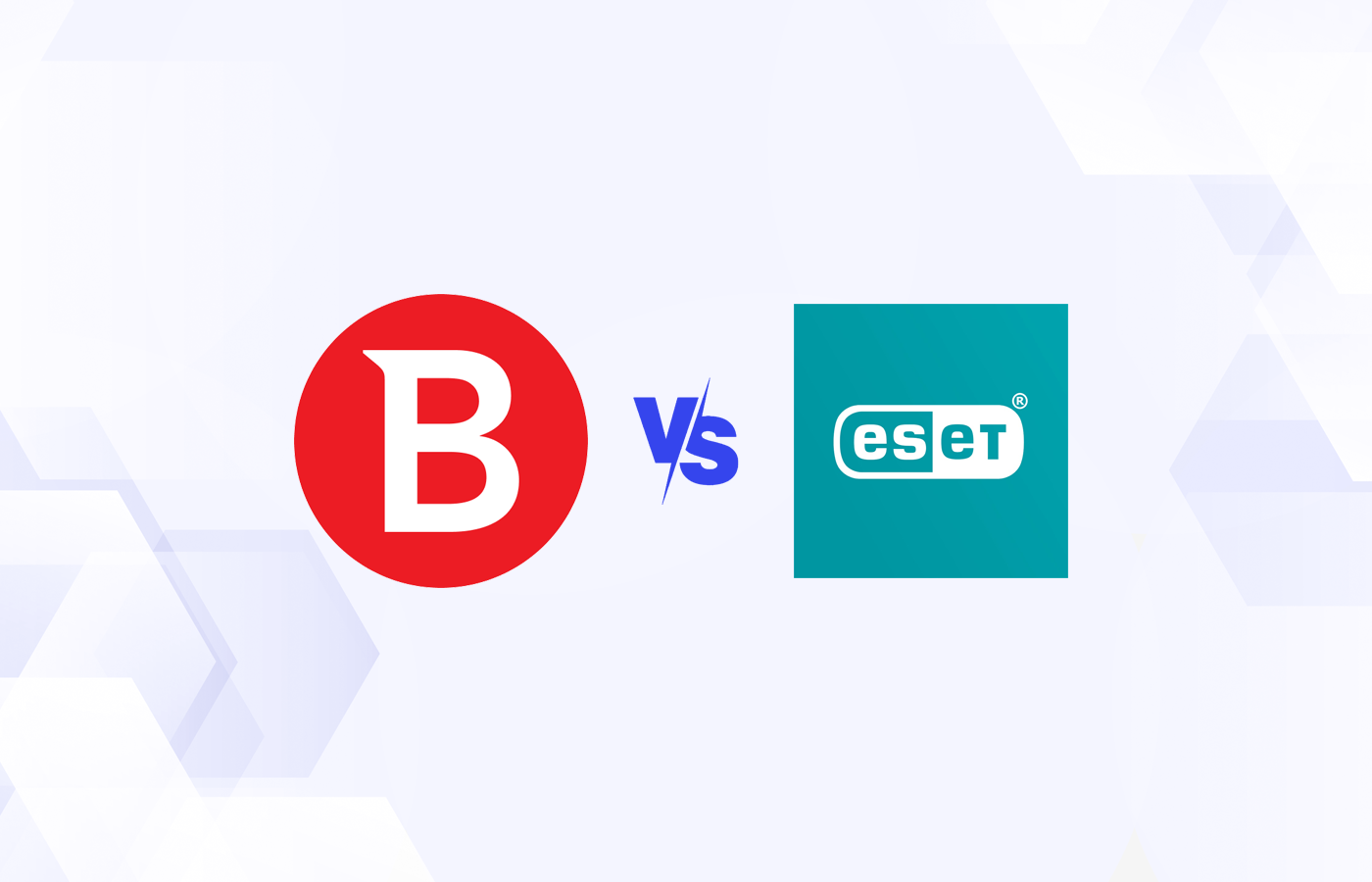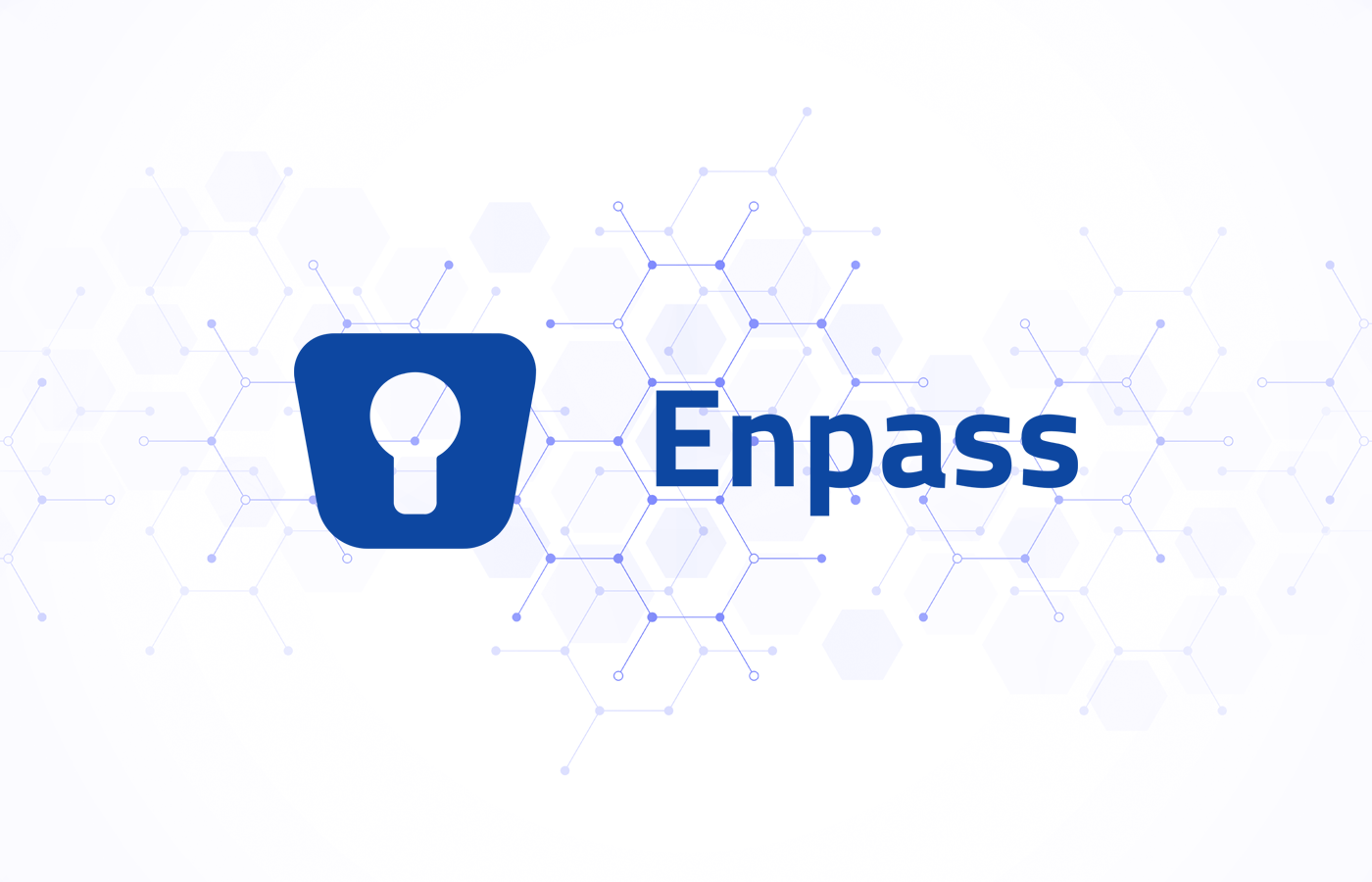One of the most powerful defenses an organization can employ against distributed denial-of-service (DDoS) attacks is having access to DDoS protection services. These solutions act as a shield, ensuring your organization’s websites remain protected against disruptive attacks. The following vendors are a sampling of some of the best DDoS protection service providers on the market today, and most can be deployed in any industry, from gaming and eCommerce to manufacturing and energy.
- Cloudflare: Best overall DDoS protection service provider
- Radware: Best for tailored, scalable DDoS protection solutions
- Imperva: Best for instant, high-capacity DDoS mitigation
- Amazon Web Services: Best for scalable protection on AWS infrastructure
- GCore: Best for real-time bot protection, edge infrastructure
- Akamai: Best for defense against application threats
- Ribbon: Best for advanced DDoS detection and policing
- Vercara: Best for wide-range defense across infrastructures
- NetScout: Best for hybrid, adaptable DDoS solutions
Top DDoS Protection Service Providers Comparison
Most of the vendors listed here scored well in the Forrester DDoS Wave. In addition to handling traditional DDoS attacks, they incorporate cloud, mobile and IoT features, as well as these key features and services:
| Traffic Handling | Real time DDoS Attack Mitigation | Configuration | Scalable | Pricing | |
|---|---|---|---|---|---|
| Cloudflare | High | Yes | Easy | Yes | Offers free version; Pro plan starts at $20/month. |
| Radware | High | Yes | Moderately complex | Yes | Starts from $16,000 in the marketplace. |
| Imperva | High | Yes | Moderately complex | Yes | Pricing available upon contacting Imperva sales. |
| AWS | High | Yes | Moderately complex | Yes | $3,000 per organization per month. |
| GCore | Moderate | Yes | Moderately complex | Yes | Offers free tier; Basic plan starts at $2.6/Mbps/month. |
| Akamai | High | Yes | Complex | Yes | Offers free trial; pricing available upon contacting Akamai sales. |
| Ribbon | High | Yes | Complex | Yes | Pricing available upon contacting Ribbon sales. |
| Vercara | Moderate | Yes | Complex | Yes | Pricing available upon contacting Vercara sales. |
| Netscout | High | Yes | Complex | Yes | Pricing available upon contacting Netscout sales. |
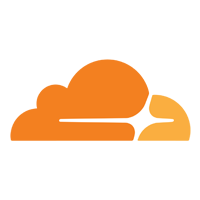
Cloudflare
Best overall
Cloudflare’s cloud-based DDoS protection system can deal with layer 7 attacks as well as layer 3 and layer 4 attacks. Instead of using dedicated anti-DDoS hardware, every machine in its global network takes part in DDoS mitigation. Its DDoS protection secures websites, applications, and entire networks while ensuring the performance of legitimate traffic is not compromised.
Pricing
- Provides free website DDoS protection in all application service plans.
- Offers different versions — Free, Pro ($20/month), Business, and Enterprise — tailored to different website needs.
Features
- Cloudflare’s 100 Tbps network blocks an average of 76 billion threats per day, including some of the largest DDoS attacks in history.
- Its unmetered, always-on DDoS protection for web assets (HTTP/HTTPs) is backed by intelligence harnessed from Cloudflare’s global network.
- Works in tandem with Cloudflare’s cloud web application firewall (WAF), Bot Management, and other L3/4 security services to protect assets from cyber and network threats.
- Cloudflare Spectrum is a reverse proxy service that provides DDoS protection for any application (not just the web), such as File Transfer Protocol (FTP), Secure Shell (SSH), Voice over Internet Protocol (VoIP), gaming, or any application running over a TCP/UDP protocol, and comes with built-in load balancing and traffic acceleration for L4 traffic.
- Cloudflare Magic Transit provides Border Gateway Protocol (BGP)-based DDoS protection for network infrastructure, either in always-on or on-demand deployment modes.
- Data centers in all 250 cities across 100 countries announce customer subnets to ingest network traffic and mitigate threats close to the source of attack.
- Centralized and decentralized mitigation systems work in concert to identify and mitigate most DDoS attacks in under 3 seconds.
- Preconfigured static rules are deployed in less than one second.
- Built-in analytics give insights into traffic patterns, threats observed (and blocked) from the dashboard or via the Cloudflare GraphQL API (application programming interface).
- Can be integrated with third-party security information and event management (SIEM) tools.
Pros
- Extensive global network.
- Advanced protection features/tools.
- Seamless integration with various services.
- Provides an intuitive dashboard, allowing easy filtering and identification of attack patterns.
- Offers free tier with basic protection.
Cons
- Heavy reliance on Cloudflare’s infrastructure.
- Potential pricing complexities for custom plans.
- Limited support for lower plans.
For more information, read the full Cloudflare review.

Radware
Best for tailored, scalable DDoS protection solutions
Radware offers DDoS protection across any infrastructure implementation for the public cloud, the enterprise, and specifically for service providers. It secures the data center, private cloud, public cloud, and 5G infrastructure using a solution that is agnostic to the environment, and was designed to help service providers protect large-scale networks.
Pricing
- DefensePro, a part of Radware’s attack mitigation solution, offers automated DDoS defense starting from $16,000 in the marketplace.
- For a custom quotation tailored to your needs, contact the Radware sales team.
Features
- Wide security coverage with automated zero-day DDoS attack protection.
- Offers hybrid, always-on and on-demand cloud DDoS service deployment options.
- Cloud Secure Sockets Layer (SSL) attack protection that maintains user data confidentiality.
- Single pane of glass with unified portal and fully managed service by Radware’s Emergency Response Team.
- Also offers web application security for integrated application and network security.
- Combines always-on detection and mitigation with cloud-based volumetric DDoS attack prevention, scrubbing, and 24/7 cyberattack and DDoS security.
Pros
- Offers tailored solutions for diverse infrastructures.
- Provides extensive and strong focus on attack prevention and mitigation.
- Provides a unified portal for monitoring.
- Can be tailored to customers such as telecom and cloud operators.
Cons
- Configuration and setup might be moderately complex, requiring technical expertise.
- Pricing might be relatively higher compared to some competitors.
- Some users report challenges in integrating with existing systems.
For more information, read the full Radware review.

Imperva
Best for instant, high-capacity DDoS mitigation
Imperva DDoS Protection can deal with any type of asset with a three-second mitigation time for any type of attack. Onboarding is said to be easy and fast, while the operation is simplified with out-of-the box policies and self-adaptive tuning capabilities. Visibility and reporting are augmented by Imperva Attack Analytics.
This approach provides a holistic view of all attack types and layers, and correlates these to accelerate the investigation process while reducing alert fatigue. Imperva works across a range of industries, including eCommerce, energy, financial services, gaming, healthcare, manufacturing, and technology.
Pricing
- Provides flexible one-, two-, and three-year standby and automatic service plans tailored to specific business needs, offering cost savings by avoiding over-provisioning.
- Custom quotations available upon contacting Imperva sales.
Features
- Protects websites, networks, Domain Name Systems (DNS), and individual IPs.
- Stops layer 3, 4, and 7 attacks.
- Capacity of 9 Tbps, 65 GPPs.
- 24/7 support and security operations center (SOC) with global coverage.
- A single stack architecture reduces latency and results in fast remediation of DDoS attacks and other web application threats.
- Each of the 50 points of presence (PoPs) within the Imperva global network runs all security services (DDoS, WAF, API security, bot management).
- Delivers real-time visibility into DDoS threats with reporting and attack correlation through Imperva Attack Analytics or a SIEM integration.
Pros
- Provides a three-second mitigation service level agreement (SLA) for any DDoS attack, regardless of type, size or duration, without disrupting legitimate traffic.
- Provides real-time insights through attack analytics.
- Self-adaptive security policies, self-service configuration, and Terraform and API support.
Cons
- Lack of transparent pricing information.
- Offers limited customization options.
- Strict adherence to SLA is needed for optimal performance.
For more information, read the full Imperva review.
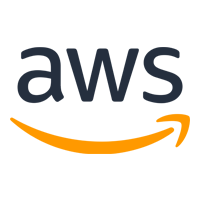
Amazon Web Services
Best for scalable protection on AWS infrastructure
AWS Shield is a managed DDoS protection service that safeguards applications running on AWS. It defends against the most common, frequently occurring network and transport layer attacks that target websites or applications. It provides always-on detection and automatic inline mitigations that minimize application downtime and latency.
Pricing
- AWS Shield comes in two subscription tiers: Standard and Advanced. AWS Shield Standard has no additional charge for AWS customers.
- AWS Shield Advanced offers its features for $3,000 per organization per month. Amazon requires AWS Shield Advanced subscribers to commit to a minimum of one year when selecting this subscription tier.
Features
- All AWS customers benefit from the automatic protections of AWS Shield Standard at no additional charge to defend against most of the common, frequently occurring network and transport layer DDoS attacks.
- Using AWS Shield Standard with Amazon CloudFront and Amazon Route 53 provides comprehensive availability protection against all known infrastructure (layer 3 and 4) attacks.
- For higher levels of protection against attacks targeting applications running on Amazon Elastic Compute Cloud (EC2), Elastic Load Balancing (ELB), Amazon CloudFront, AWS Global Accelerator, and Amazon Route 53 resources, the company offers AWS Shield Advanced.
- In addition to the network and transport layer protections that come with Standard, AWS Shield Advanced provides additional detection and mitigation against sophisticated and large DDoS attacks, near real-time visibility into attacks, and integration with AWS WAF, a web application firewall.
- AWS Shield Advanced offers 24/7 access to the AWS Shield Response Team (SRT) and protection against DDoS related spikes in Amazon EC2, ELB, Amazon CloudFront, AWS Global Accelerator, and Amazon Route 53 charges.
Pros
- Offers scalable protection across AWS infrastructure.
- Provides different tiers for varying levels of defense.
- Integrates seamlessly with AWS services like WAF.
- Standard free tier protects against most common attacks.
- Easy setup and configuration. No need to engage AWS Support to benefit from DDoS protection.
Cons
- Pricing might escalate based on usage and tier.
- Relies heavily on AWS infrastructure and services.
- May have certain limitations compared to specialized solutions.

GCore
Best for real-time bot protection, edge infrastructure
GCore provides both web application and server-level DDoS protection services with an edge cloud infrastructure. These services can protect against up to three layers of attack, most commonly the network (L3) and transport (L4) layers. Real-time bot protection and a next-generation firewall (NGFW) are also part of its offering. Interested buyers can also contact GCore to develop custom features suited for their business’s needs.
Pricing
- GCore offers its web application DNS services at three pricing tiers. Free is offered at no cost but with limited features. Pro provides more features at a cost of $2.95 per month. Enterprise provides the highest number of features and has a minimum cost of $295 per month.
- For server protection, GCore’s three pricing tiers are a little different. The Start tier charges $2.60 per month for L3 and L4 protection for 1 Mbps. The Pro tier costs $3.90 per month for L3, L4, and L7 protection for 1 Mbps.
- Both Pro and Enterprise also charge request fees after a certain number of requests. Pro begins charging $0.20 per million requests after the first 10 million requests. Enterprise charges $0.16 per million requests after the first 1 billion requests.
- The Custom tier provides further features but requires contacting GCore’s sales team for a quote. GCore does warn interested buyers that their prices might change depending on location.
Features
- Real-time bot protection by blocking unwanted bot traffic directed toward your website and API.
- Over 140 PoPs across five continents.
- Supports HTTP/2, IPv6, and web sockets.
- Focuses on blocking sessions instead of individual IP addresses.
- Can provide load balancing options including round robin, weighted round robin, and IP hash.
- Can be packaged with other GCore offerings, including an all-in-one streaming platform and global hosting.
Pros
- Offers real-time bot protection and NGFW.
- Focus on edge cloud infrastructure.
- Offers bundling options with other GCore services.
- High traffic handling and filtering capabilities.
- Offers free tiers for starting customers.
Cons
- Pricing models might be complex with tiered offerings and minimum commitment rate.
- Might have limitations in customization for specific needs.

Akamai
Best for defense against application threats
Akamai offers three purpose-built cloud solutions to provide end-to-end DDoS defense for organizations. The combination of Prolexic, Edge DNS, and App & API Protector would be recommended for the highest quality of DDoS mitigation to keep applications, data centers, and internet-facing infrastructure (public or private) protected.
Effective mitigation techniques are available for all classes of application-layer DDoS/DoS attacks, including those designed to exhaust resources, those which exploit vulnerabilities that can cause availability issues (such as buffer overflows), those which exploit flaws in application business logic, compromise API infrastructure, and attacks performed by bots.
Pricing
- Pricing for Akamai Prolexic Routed is available upon direct contact with the sales team.
- Offers a free trial option.
Features
- Akamai’s Prolexic global security operations command centers (SOCCs) provide fully managed DDoS protection, backed by industry-leading service level agreements and support. It combines mitigation with Akamai’s security operations centers to stop attacks across all ports and protocols before they become business-impacting events.
- Edge DNS is a DNS service that moves DNS resolution from on premises or data centers to the Akamai Intelligent Edge. It is designed for nonstop DNS availability and high performance, even across the largest DDoS attacks. It can be deployed as a primary or secondary solution with optional Domain Name System Security Extensions (DNSSEC) support to protect against DNS forgery and manipulation.
- Akamai also offers extremely robust protection against DDoS attacks at the application layer via its web application and API protection (WAAP) solution, known as App & API Protector. Prolexic offers 10+ Tbps of dedicated DDoS scrubbing capability to mitigate attacks instantly via its zero-second SLA.
- Custom runbook/tabletop attack drills are provided to optimize incident response and maintain operational readiness.
Pros
- Offers instant, high-capacity mitigation against diverse attacks.
- Provides access to a large network infrastructure for protection.
- Provides versatile solutions across various layers and infrastructures.
- Offers 225+ Akamai SOCC frontline responders that act as an extension of a customer’s incident response team to balance automated detection and response with human engagement.
- Provides real-time threat intelligence to mitigate application-layer security threats like SQL injection, cross-site scripting (XSS), and other web-based attacks.
Cons
- Advanced features may require technical expertise for optimal utilization.
- Lack of transparent pricing on the website makes it potentially less accessible for smaller businesses.
For more information, read the full Akamai review.

Ribbon
Best for advanced DDoS detection and policing
Ribbon offers a suite of core session border controllers (SBCs) with advanced DDoS detection and mitigation capabilities. It provides DDoS detection and mitigation through configuration and dynamic adaptation at scale, with little to no impact on traffic throughput or packet processing.
Pricing
- Custom quotations for Ribbon’s DDoS protection services are available upon contacting its sales team.
Features
- Access Control List (ACL) policing applies access level control to allow traffic from trusted pre-configured IP addresses.
- IP address learning: When IP addresses used by valid peers/endpoints are not known prior or may change dynamically, peers are confirmed as trusted only after receipt of specific valid SIP requests.
- Media packet policing accepts media packets only if they correspond to a session negotiated via Session Initiation Protocol/Session Description Protocol (SIP/SDP) signaling.
- Media address learning: If a peer media address advertised in SIP/SDP does not match the actual source address of the Real-time Transport Protocol (RTP) packets, it is possible to learn the peer media address to perform policing of subsequent packets.
- Priority aware packet policing: rate limit SIP signaling packets on a microflow basis and give higher priority to packets from authenticated sources than those from unknown sources to increase the likelihood that desired traffic gets let through while malicious traffic is stopped.
- Application-level call admission control (CAC) to rate limit traffic on a peer/IP trunk/IP trunk group level and can also be provided to limit bandwidth usage.
Pros
- Utilizes advanced techniques for detection and policing.
- Has a flexible configuration-based adaptation for traffic levels.
- Provides an application-level control for rate limiting.
Cons
- Configuration might require technical expertise.
- Specific details on certain features might not be openly available.
- Might be more suitable for specific use cases/ niche markets.
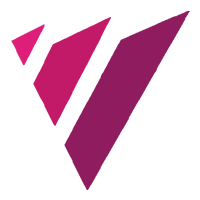
Vercara
Best for wide-range defense across infrastructures
Vercara (formerly Neustar) UltraDDoS Protect offers 12+ Tbps of DDoS mitigation and a global dedicated data scrubbing network to help maintain an online presence, reduce the threat of theft, and protect the bottom line. Vercara offers on-premises hardware to stop smaller attacks instantly, as well as the UltraDDos Protect cloud for when attack volume and complexity explode.
Pricing
- Pricing for Vercara’s DDoS protection services is available upon direct contact with the sales team.
Features
- Automation that moves attacks into mitigation quickly.
- Always-ready options for DNS, BGP, and hybrid configurations.
- Carrier-class DDoS mitigation that includes a massive network of dedicated scrubbing capacity.
- OSI layer 3, layer 4, layer 7, and IPv6 capable.
- Globally positioned scrubbing infrastructure.
- Harnesses multiple DDoS mitigation vendor technologies including Arbor, Cisco, Citrix, Juniper, HP, and Vercara.
- Multiple Tier 1 internet network providers.
- Offers on-premises hardware and cloud-based protection.
- Vercara can secure VPN connections via VPN Protect.
- Can connect to 61 global data centers for traffic control and increased security.
Pros
- Offers various deployment options for protection.
- Provides defense across multiple infrastructures.
- Capable of scaling for different traffic levels.
Cons
- Lack of transparent pricing information.
- Configuration might require technical expertise.
- Less information available on detailed features and analytics.

Netscout
Best for hybrid, adaptable DDoS solutions
To stop sophisticated DDoS attacks, NetScout offers a portfolio of DDoS attack protection products and services that enable organizations to customize a solution, either hosted in the cloud or on premises.
Hybrid stateless, on-premises and cloud protection can stop today’s high-volume attacks, which often exceed 600GB/sec, as well as stealthy application-layer attacks against stateful infrastructure devices, such as firewalls, IPSs, and application delivery controllers (ADCs).
Pricing
- Pricing for Netscout’s DDoS protection services is available upon direct contact with the sales team.
Features
- Located on premises, the NetScout Arbor Edge Defense (AED) is an in-line, always-on product that can automatically detect and stop all types of DDoS attacks – especially low and slow application-layer attacks.
- Placed on the network edge between the router and network firewall to provide best-of-breed DDoS protection, AED screens incoming and outgoing traffic using stateless packet processing technology.
- Its Cloud Signaling capability automatically routes traffic to one of 14 scrubbing centers for analysis and mitigation to stop the attack within minutes.
- The ATLAS Security Engineering and Response Team (ASERT) provides real-time attack information that enables it to automatically block up to 90% of DDoS attack traffic before it starts inspecting the first attack packet.
- Suite of automated countermeasures that identify and block more complex attacks at the network or application layers.
- Stops threats such as scanning, brute force password attempts, and known indicators of compromise (IoCs).
- Blocks outbound traffic from compromised internal device communications with known bad sites (e.g. attacker command & control infrastructure).
Pros
- Adaptable solutions for different deployment needs.
- Can easily scale and block in bulk inbound DDoS attacks and IoCs.
- Offers hybrid solutions for varied infrastructure.
- Real-time attack detection and blocking capabilities.
Cons
- Setup and configuration might be complex.
- Some users report integration challenges with certain systems.
- Limited transparency on information on certain features.
Key Features of DDoS Protection Services
Choosing the best DDoS protection solution requires a solid understanding of the features that enable an effective defense against cyberattacks. A complete DDoS solution should have these key features for quickly detecting, mitigating, and responding to attacks while maintaining uninterrupted service:
- Traffic Handling and Filtering: Effectively distinguishes genuine traffic from hostile assaults, ensuring continuous access to networks or services while maintaining performance.
- Real-time DDoS Attack Mitigation: Identifies and stops ongoing DDoS threats as they occur, preventing service outages and limiting potential harm.
- Anomaly Detection: Recognizes unusual patterns in network traffic, detecting possible dangers early and allowing for prompt preventive action.
- Scalability: Adapts to changing traffic levels, particularly during attack peaks, to provide constant service availability and performance.
- Integrations: Works in coordination with other security products or platforms to improve overall security by merging defensive mechanisms and exchanging threat intelligence.
In addition to these core features, a reliable DDoS protection solution should include a service level agreement with guaranteed mitigation time, consistent application uptime, simple onboarding, and integrations with Terraform and APIs. Also, for comprehensive protection, verifying VoIP defense inclusion is crucial due to rising VoIP-based DDoS threats.
How to Choose the Best DDoS Protection Service for Your Business
Choosing the best DDoS protection service depends on various factors tailored to the specific needs of a business:
For Large Businesses
- Scalability: Look for solutions that can manage large traffic levels and expand with your organization.
- Comprehensive security: Look for solutions that provide multi-layered security against many attack types and have strong mitigation capabilities.
- Customization and adaptability: It is critical to have solutions that can be tailored to unique infrastructure and business requirements.
For Medium-Sized Businesses:
- Cost-Efficiency: Choose solutions that strike a balance between price and features, delivering critical protection without going overboard.
- Ease of use: Look for user-friendly interfaces and manageable setups that don’t necessitate a high level of technical knowledge.
- Accessible customer support: Choose providers who offer reliable and accessible customer support through different platforms.
For Small Businesses:
- Affordability: Prioritize options that provide good protection while remaining within budgetary restrictions.
- Simplicity: Look for clear solutions that are simple to set up and administer without the need for specialized IT staff.
- Reliability: Look for consistent service availability as well as crucial defenses against typical threats.
When picking a DDoS protection solution, it is critical to consider the unique demands, budget, infrastructure, and development potential of the organization. Make informed choices by testing trial versions, speaking with experts, and examining consumer feedback.
How We Evaluated the Best DDoS Protection Services
In our evaluation of the best DDoS protection vendors, we adopted a systematic approach utilizing five weighted categories, each comprising crucial DDoS capabilities as subcriteria:
Cost – 20%
This criterion examines free trial availability, price structure clarity, and the flexibility of customisable product packages, all of which are critical for enterprises attempting to balance security demands with financial constraints.
Core Features – 30%
This criterion examines essential functions such as traffic handling, reporting and analytics, real-time mitigation, anomaly detection, scalability, integrations, and automated response, which form the foundation of a good DDoS defense system. These key factors jointly determine the solution’s effectiveness in preventing attacks and protecting digital assets.
Non-core Features – 15%
Although not at the forefront, these supplemental features, such as security enhancements, anonymity protection, and customization choices, greatly contribute to a solution’s adaptability and additional security layers.
Customer Support – 10%
The availability and effectiveness of technical help via various channels such as phone, email, live chat, knowledge base, and self-service support are critical factors to consider. This criterion assesses support accessibility and responsiveness, which are vital for quick issue resolution and system maintenance.
Ease of Use and Configuration – 15%
User experience, as represented by UI design, configuration flexibility, and the comprehensiveness of guided setup and onboarding resources, is critical in ensuring seamless deployment, effective utilization, and rapid adaptation of the DDoS protection solution within an organization’s infrastructure.
Frequently Asked Questions (FAQs)
Is DDoS Protection Necessary?
DDoS protection is critical for businesses because it:
- Reduces the likelihood of an attack and the susceptibility of the enterprise.
- Prevents business interruptions and website disruptions.
- Responds and resolves incidents more quickly.
- Reduces the time it takes to understand a service outage.
- Employee productivity is saved from loss.
- Allows for the rapid deployment of countermeasures.
- Protects the brand’s reputation and money.
- Maintains app availability and performance.
- Reduces costs of online security.
- Protects against emerging threats such as ransomware.
How Do DDoS Defense Solutions Work?
DDoS protection entails utilizing firewalls and filters to monitor server access. If a suspicious traffic surge occurs, these filters prohibit access, indicating the nature of the assault. Filters then utilize strategies such as IP filtering to restrict certain devices, or geo-blocking to prevent traffic from a specific location. Legitimate users may experience limited access as a result of mass bot denial, potentially limiting their access. Alternatively, rerouting legal traffic to a concealed IP address via DNS update, which may be accomplished by contacting the ISP, provides a temporary solution for minor DDoS attacks.
What Are the Common DDoS Protection Techniques?
The three most commonly-used tactics are the clean pipe method, content delivery network (CDN) dilution, and TCP/UDP-DDoS proxy.
- Clean Pipe Method: This technique essentially directs all traffic through a decontamination pipeline, identifying and separating malicious traffic from legitimate traffic. The malicious traffic is then blocked, while the legitimate traffic is allowed to access your website.
- CDN: A collection of distributed networks that serve content to users. As such, servers closest to a user will provide them with content instead of the original server. The large bandwidth a CDN offers makes it ideal for soaking up DDoS attacks at network (L3) and transport (L4) layers. Additionally, since the original server is not the one responding to user requests, it’s much harder for DDoS attacks to reach the target server.
- TCP/UDP Proxy Protection: This tactic functions similarly to CDN dilution but for services that use transmission control protocol (TCP) or user datagram protocol (UDP). Services that use these protocols include email and gaming platforms.
Who Is the Leader in DDoS Protection?
Cloudflare emerges as one of the market’s leading solutions for strong defensive mechanisms against several levels of DDoS assaults, protecting networks from network, transport, and application-level threats.
Radware is a pioneer in cybersecurity and application delivery solutions across varied data center settings, as acknowledged by industry experts such as Gartner and others. Radware is well known for its DDoS mitigation, web application firewall, and bot detection technologies, and consistently wins awards for its comprehensive cybersecurity products.
Bottom Line: Protect Your Business Against DDoS Attacks
A DDoS attack might render your servers inoperable. While larger organizations may have specialized IT personnel, smaller businesses face a greater risk from these threats. DDoS security solutions monitor traffic influxes and restrict traffic flow to avoid overloading servers, and limit the damage caused by an attack. Businesses of all sizes can defend their digital infrastructure by investing in DDoS protection services, to ensure uninterrupted online services, and consequently preserving consumer trust, and avoiding possible losses in case of cyberattacks.


